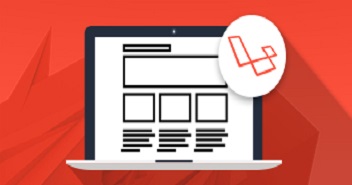
Laravel is a popular development platform well-known for its performance and active user community. Out of the box, Laravel is pretty secure—however, no framework can claim to be 100% secure.
Even though the Laravel maintenance team swiftly addresses any loopholes discovered, as a developer, you should also prioritize focusing on the security aspects of your Laravel 10.0 app.
In this article, I have attempted to cover the major Laravel security loopholes a Laravel developer might face and how to fix them.
To give you a hands-on understanding of the concepts discussed in this article, I’ve employed a management system built on the Laravel framework.
Experience Seamless Laravel Hosting with Cloudways
Launch with 1-click, dive into our dev-friendly features, and enjoy an optimized stack for seamless coding.
Laravel Security Features
Laravel offers the following security features to allow developers to reduce the Laravel vulnerabilities in the application:
- Laravel Authentication System (Read More About: User Authentication in Laravel)
- Reduce Laravel Vulnerabilities From CSRF (Cross-Site Request Forgery)
- Protection Against XSS (Cross-Site Scripting)
- SQL Injection
1. Laravel Authentication System
Laravel hacking is a common problem that can further cause vulnerabilities to other supporting XSS and different files. Most casualties of website hacks find that their site pages are diverted to other malicious websites.
Laravel already has a robust user authentication process in place with the associated boilerplate code available in the scaffolding.
Laravel uses “providers” and “guards” to facilitate the authentication process. Guards authenticate users for each request they make, while providers facilitate user retrieval from the database.
As a developer, all you have to do is set up the database, controllers, and models. During the process, authentication features are built into the app.
Read More About: User Authentication in Laravel
2. Reduce Laravel Vulnerabilities From CSRF (Cross-Site Request Forgery)
Laravel employs CSRF tokens to prevent external third parties from generating fake requests, mitigating potential security vulnerabilities within the Laravel framework.
For this, Laravel creates and integrates a valid token into every request that comes in the form of an AJAX call.
When the request is invoked, Laravel compares the request token with the one saved in the user’s session. If the token does not match, the request is classified as invalid, and no further action is executed.
If you are manually creating forms in standard HTML using Blade templates (not a recommended choice), you must pass the CSRF token there, as shown below:
<form name="test">
{!! csrf_field() !!}
<!-- Other inputs can come here-->
</form>
Read More About: Enable Laravel CSRF Protection
3. Protection Against XSS (Cross-Site Scripting)
In XSS attacks, attackers inject JavaScript, often into a website’s form text areas. When new visitors access the affected page or form, the injected script executes, causing malicious impacts.
To better help you understand what I mean:
Consider a scenario where a blogging platform allows users to post comments on blog posts. Hypothetically speaking, a user with malicious intent enters the following JavaScript code in the comments:
<script>alert("You are hacked")</script>
Without proper XSS protection, Laravel vulnerabilities rise, with the JavaScript executing on each page reload. This can lead to potential security breaches, compromising user data and the overall integrity of the application.
While the example code is not malicious in itself, it is the perfect example that demonstrates the full extent of this attack.
Laravel offers native support that protects the code from XSS attacks. The feature kicks in automatically and protects the database in the process. As a result, any code that contains escape tags is outputted as HTML, as shown below:
<script>alert("You are hacked")</script>
Read More About: Laravel Validation and User Input Sanitization to Prevent XSS Exploits
Prevent SQL Injection Attacks With Cloudways Cloudflare Enterprise Add-On
Automate website security with Cloudflares managed Web Application firewall & DDoS mitigation at layers 3, 4, & 7.
4. SQL Injection
Laravel’s Eloquent ORM uses PDO binding that protects from SQL injections. This feature ensures that no client can modify the intent of the SQL queries.
Consider the example of the form used to collect users’ email addresses from a database. The form will search for an email address, for instance, “[email protected]”. Now imagine that the SQL query is modified to:
SELECT * FROM users WHERE email = '[email protected]' or 1=1
In the above example, 1=1 is a simple logical expression that always evaluates to be true. If it is attached to the above query with the OR condition, the query will fetch all records from the table because the SELECT condition will evolve to be true.
Now consider another improvisation of the attack in which the query is modified directly to the command “drop table users,” and instead of the email address, “[email protected]” is written. The query will look like:
SELECT * FROM users WHERE email = '[email protected]'; drop table users;
When this query is executed, the table “users” will be removed from the database.
When the PDO parameter binding is in place, the input is in quotes, and the query will look like:
SELECT * FROM users WHERE email = '[email protected] or 1=1'
Since no records will match with either the email or the “1=1”, the query will not return anything.
Laravel offers various methods for interacting with databases, including the use of raw SQL queries. Yet, Eloquent remains the most popular option. Learning how to use the ORM because it helps prevent SQL injection attacks caused by malicious SQL queries.
Read More About: Protect a PHP Website from SQL Injection Attacks
Laravel Security Best Practices
Thanks to the inbuilt Laravel security features, the framework is already much more secure than other PHP frameworks. However, there are a number of things you can do to make your Laravel code more secure.
Implementing a few measures can help safeguard your application from potential code attacks, significantly enhancing its overall security.
Now that we’ve already looked at an overview of Laravel security features, let’s check out some best practices to make your Larvel application more secure.
1. Prevent SQL Injection by Avoiding Raw Queries
Laravel uses PDO binding to prevent SQL injection attacks because no variable gets passed on to the database without validation. Developers, however, still opt for raw SQL for various reasons.
If this is the case with you, you should always use well-prepared SQL queries to prevent mishaps. Consider the following statement that looks ripe for SQL injection:
Route::get('this-is-prone-to-sql-injection', function() {
$name = "'Inshal' OR 1=1";
return DB::select(
DB::raw("SELECT * FROM users WHERE name = $name"));
});
Here the statement 1=1 used in the OR condition will result in returning all the rows in the users table. This can be prevented by using the following code instead:
Route::get('safe-from-sql-injection', function() {
$name = "'Inshal' OR 1=1";
return DB::select(
DB::raw("SELECT * FROM users WHERE name = ?", [$name]));
});
Laravel replaces the question marks with the query variable, automatically escaping the input variables. This protects the code from SQL injection attacks.
2. Force HTTPS if Your Application Is Exchanging Sensitive Information
When you deploy your website on HTTP, all the data exchanged, including passwords and others, are sent in plain content. This could be easily stolen by anyone in between the transmission. So to keep this information safe, always deploy your web applications on HTTPS to safeguard their sensitive information.
You can simply set up an SSL certificate on your website by getting little assistance from any Laravel developer who will shift your application from HTTP to HTTPS easily. To hide certain routes, you can use the below-defined filter, which will redirect users to a secured route.
Route::filter('https', function() {
if ( ! Request::secure())
return Redirect::secure(URI::current());
});
Read More About: Setting up HTTPS SSL Certificates on Laravel
3. Escape Content to Prevent XSS
To avoid XSS attacks, you should be using the double brace syntax in the blade templates: ({{ $variable }})
Only use this {!! $variable !!} syntax when you are sure that the data in the variable is safer to be displayed.
4. Use Laravel Purifier to Enhance Your Security
The double curly braces in Laravel ensure that no raw HTML is yielded to the customer, however, if you want to yield some HTML variable to your customer from your database, then you can utilize HTML Purifier, which is an all-round kept instrument that will tide up your code and will deal with omitted and missing HTML codes.
You might also like: Ultimate PHP Security Best Practices
Laravel Security Packages
Laravel offers several packages to enhance the security of its applications. While I can not discuss all of them, I will mention the most popular security-focused Laravel packages:
- Laravel Security Component: The Laravel security component secures roles and objects by integrating the Symfony security core into Laravel. Using voters, it checks role-based privileges, enhancing security validation.
- Laravel Security: Laravel security is one of the most frequently used packages and is known for removing XSS vulnerabilities in the codebase.
- Laravel-ACL: Laravel-ACL provides role-based secured permissions to the Laravel authentication process. The package helps protect routes and CRUD controller methods in the applications.
Conclusion
While there are numerous measures to improve Laravel security, the framework, by default, comes with solid built-in security features. These features, like secure authentication and robust encryption, are rightly developed to testify to all your application security needs.
Q1. How to make Laravel more secure?
Ensure Laravel security by updating dependencies regularly, utilizing HTTPS, and implementing built-in protections against XSS and CSRF. Safeguard databases with Eloquent ORM, customize error messages, and manage sessions securely. Implement Content Security Policy (CSP), validate and secure file uploads, and monitor for suspicious activities.
Q2. Is Laravel good for security?
Yes, Laravel is highly secure. With built-in protections against common vulnerabilities like SQL injection and XSS, a robust authentication system, and active community support, it prioritizes security best practices.
Q3. Is Laravel more secure than PHP?
Yes, Laravel provides enhanced security compared to Core PHP. Its structured architecture ensures data integrity and confidentiality. In contrast, Core PHP may require additional measures, such as integrating third-party APIs and defining custom protocols, to mitigate cyber threats and unauthorized access.


